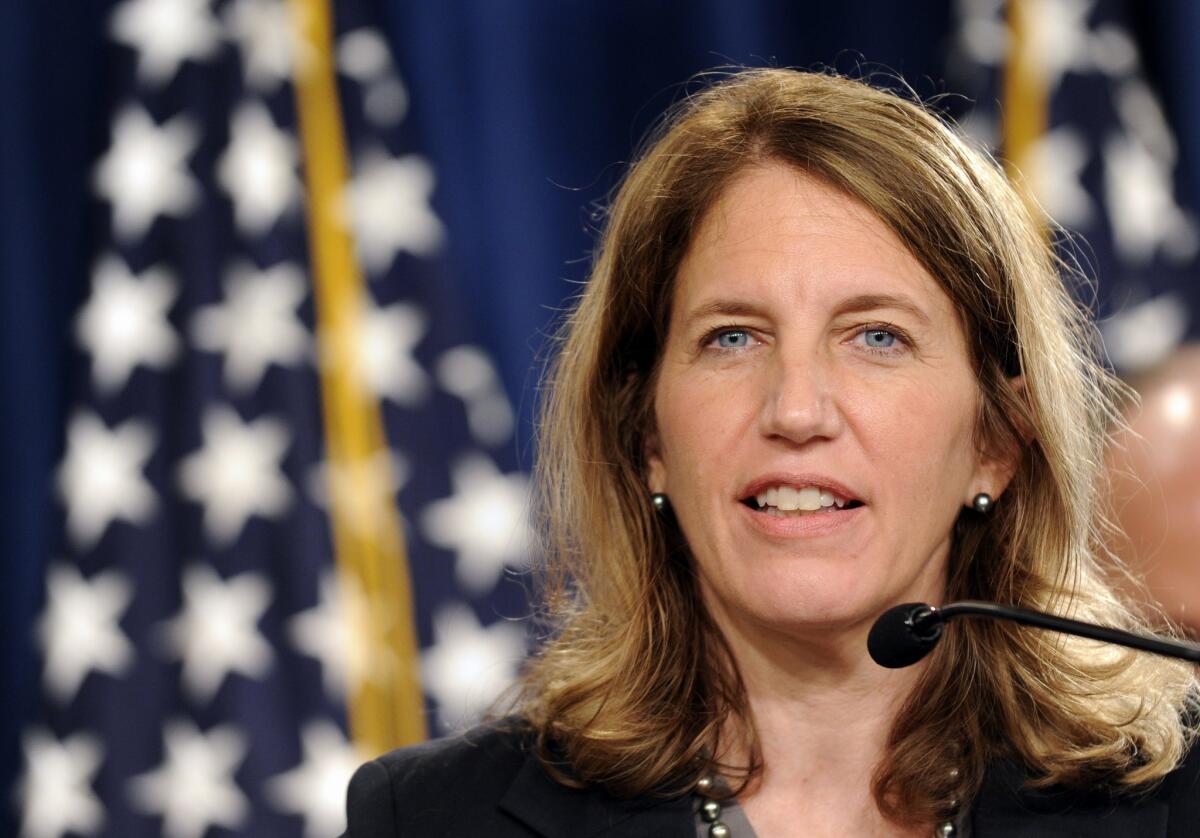White House revises birth control rule to accommodate religious groups

The Obama administration issued a new rule Friday aimed at ending its years-long fight with religious groups over the part in its landmark healthcare law that requires companies to cover contraceptives.
Employers will be allowed to register their objections to paying for such coverage, after which the U.S. government will step in and extend the coverage to women seeking it, according to the rule, published in the federal register Friday.
“Women across the country deserve access to recommended preventive services that are important to their health, no matter where they work,” Health and Human Services Secretary Sylvia Burwell said in a statement. “Today’s announcement reinforces our commitment to providing women with access to coverage for contraception, while respecting religious considerations raised by nonprofit organizations and closely held for-profit companies.”
The step is the administration’s latest attempt to accommodate religiously affiliated nonprofits and businesses that object to providing the contraception coverage while also making the coverage available to women.
Despite several adjustments to the law, the groups – including Catholic hospitals, schools and some privately held businesses – have repeatedly argued that the so-called contraception mandate forces them to violate their religious beliefs.
The new rule follows a Supreme Court decision in June that said some private employers have a right to be exempted from the law on religious grounds, a ruling that was seen as a victory for social conservatives.
The court also granted Wheaton College, a small Christian school in Illinois, a temporary exemption, suggesting the court might issue an even broader blow to the mandate if the Obama administration did not tweak the law.
It’s not clear whether the latest revision will satisfy the religious groups, which are seeking a full exemption from the mandate, like the one granted to churches. Lori Windham, lawyer for the Becket Fund for Religious Liberty, which represents Wheaton and others, said earlier Friday that the group was reserving judgment until the rule was published.
“These charities want to continue following their faith. They want to focus on ministry — such as sharing their faith and serving the poor — without worrying about the threat of massive IRS penalties,” Windham said, calling the new rule part of the “the administration’s long retreat” on the issue.
Administration officials said they did not consider the new rule a retreat.
Under the previous accommodation worked out last year, religiously affiliated nonprofits that object to covering some or all contraceptives for employees were supposed to file a form certifying their objection and notifying their insurers. After that, their insurance carriers would step in to provide the coverage at no added cost. Insurers have been willing to go along with that idea on the belief that the cost of paying for contraceptives is offset by the savings from not having to pay for pregnancies.
The college objected to the process, arguing that notifying the insurers made them complicit in the coverage. Under the new rule, the employers can now notify the government of their objections and the government will notify the insurers that enrollees should receive the separate coverage at no cost to the employers.
In addition to the new rule, the administration is proposing a similar work-around for closely held businesses that object to the mandate. Such businesses generally have a small number of investors or are family-owned or managed. In the June decision, involving the Hobby Lobby chain of craft stores, the court ruled that the chain qualified as a “person” and that providing the full range of contraceptives put a “substantial burden” on its exercise of religion.
The administration plans to solicit comment on how it could extend a similar accommodation to those businesses and will seek to change the definition of a “closely held” business, officials said.
Sign up for Essential California
The most important California stories and recommendations in your inbox every morning.
You may occasionally receive promotional content from the Los Angeles Times.







